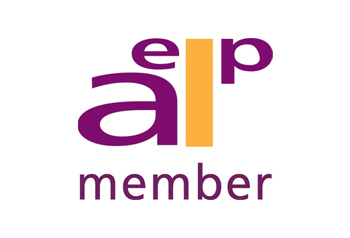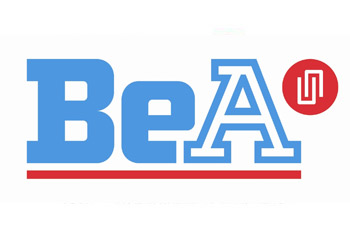Warehouse Operative Apprenticeship Course
Apprentice Warehouse Operatives can work in almost every sector, so there are a huge number of potential employers. This qualification is aimed at individuals who would like to develop the skills and knowledge necessary to operate within a warehousing environment. Warehouse Operatives work in a variety of warehouse environments. Work activities include taking deliveries, checking for damaged/missing items, storing goods, moving stock by various methods, picking/packing orders, loading goods for dispatch, maintaining stock records and documentation, and cleaning. They are required to safely use a range of equipment, machinery and vehicles, as relevant to their role and setting. This could include mechanical racking systems, materials handling equipment (MHE) or fork lift trucks.
Warehouse Operatives communicate with a wide range of people and customers. They have a passion to meet customers’ expectations by providing a quality service that encourages repeat business. Individuals in this role are highly competent in using industry-recognised systems and associated services (eg Traffic/Warehouse Management Systems) and will be able to work under pressure to tight deadlines.
Skills, interests and qualities
- A good level of fitness
- A good understanding of health and safety
- Good customer service skills along with a good telephone manner
- The ability to complete paperwork and count stock items
- Basic computer skills
- Ability to show respect for confidentiality
- Confidence, motivation, enthusiasm and a commitment to study
What training will I receive?
As an Apprentice Warehouse Operative, you will learn a wide range of warehousing and storage processes, although your specific duties will depend upon your employer requirements. You will be taught the skills which will allow you to ensure that tasks are completed within deadlines set and that objectives are met.
You will learn key skills such as:
- Taking delivery of goods and supplies
- Checking for damaged or missing items
- Developing effective working relationships
- Picking, wrapping, and packing goods
- Processing and assembling orders
- Maintaining equipment and work areas
- Using equipment and machinery
- Keeping records of stock levels
- Keeping paperwork up to date
When do I attend training?
The majority of this training may take place on the job, although there may be requirements to attend on a day release or as and when required, dependent upon the needs of your employer and to be able to complete the qualification.
What will I get at the end of my programme?
On successful completion you will have achieved a Level 2 Apprenticeship Standard in Supply Chain Warehouse Operative.
Progression opportunities
With a Level 2 Apprenticeship Standard in Supply Chain Warehouse Operative you can progress to a Level 3 Supply Chain Practioner.
How do I apply?
There are several ways to apply:
- Contact the recruitment team on 0115 9677771 or write to us at WEBS Training Ltd, The Poplars, Wollaton Road Beeston NG9 2PD
- Submit an enquiry via the website here
- Email us at info@webstraining.com
Details of standard
Outlined below are the essential knowledge, skills and behaviours that all Warehouse Operatives are required to demonstrate at level 2, regardless of their occupational area.
Core skills – all Warehouse Operatives will be able to:
- Operate and handle equipment safely and efficiently as required for their role, such as Forklift Trucks, High Reach Trucks, Powered Pallet Trucks or Man Up Trucks; manoeuvre vehicles in restricted spaces; safely use and position vehicle fitted equipment such as mirror requirements.
- Comply with appropriate rules, regulations and processes for safely and efficiently moving, handling, packing and unpacking different items, both manually and using relevant equipment (such as MHE, vehicle and delivery systems); understand consequences of incorrect use.
- Work individually and as part of a team to safely move and handle objects; maintain a high level of housekeeping and manage waste effectively; know where to find instructions or guidance; check for damaged or missing items as appropriate; take responsibility for maintaining health, safety and security of people at all times.
- Safely and efficiently load and unload items into and from vehicles, buildings, containers, lift vans, crates and/or boxes; use appropriate MHE or machinery where necessary; ensure items are safely and efficiently packed, assembled and/or disassembled as appropriate.
- Select, prepare and use packaging materials appropriate to the job efficiently and in a way which reduces waste, costs and environmental impact; taking into consideration the item(s) to be moved, and their current and final destinations.
- Use correct equipment and procedures to record receiving or stowing goods; produce relevant paperwork or labelling processes.
- Promote the values of the organisation; communicate effectively with customers and colleagues to identify and meet their needs.
- Work effectively in a warehousing team, including when under pressure, and to agreed deadlines; adapt to change in line with internal and external customer needs or circumstances.
- Use IT applications and other relevant technology and systems, including warehousing management, data capture, radio and barcoding systems, to ensure the safe and efficient processing of goods.
Behaviours
- Demonstrate integrity, credibility, honesty, positivity and personal drive in every aspect of their role; demonstrate a belief in the services that the organisation offers.
- Take ownership for own performance and training, including demonstrating a keen interest in the industry; proactively drive own ongoing learning and development, and make recommendations for improvement where relevant.
- Show personal commitment to minimising the effect of work activities on the environment.
- Adapt to and embrace the use of relevant technology, systems and equipment; use it responsibly and take an interest in new developments that could support the organisation.
English and maths requirements
Apprentices without Level 1 English and maths will need to achieve this level and take the test for Level 2 English and maths prior to taking the end-point assessment.










